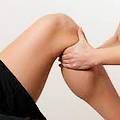Whilst the hands on side of their profession is well known, physiotherapists also support recovery through sharing knowledge.
Physiotherapy is an essential part of recovery after surgery to the hip and knee, bringing far more than supplementary care.
Movement around a joint can be improved, walking normalised, pain reduced and excessive scar tissue prevented. Physiotherapy can help with regaining your balance, along with overall body strength and mobility.
Orthopaedic surgery provides significant benefits, which a good physiotherapist can maximise to give a swifter return to normal life. They can help you to avoid adverse activity and support home exercise, through valuable advice.
A Professional Approach
Orthopaedic physiotherapy is a scientific discipline, which follows evidence based guidelines. The physiotherapists who treat you will liaise closely with your consultant, to ensure care is based on recommended protocols.
Their work extends beyond the part of your body where surgery has taken place. Your neurological and cardiovascular systems are at the core of decision making, along with overall body fitness and mobility.
A physiotherapist is there to help you achieve rehabilitation on a personal level. Movement, posture, stability and strength improve through a variety of techniques, chosen to meet your individual needs.
Treatment Methodology
Manual therapy is a common part of orthopaedic physiotherapy, a graded system of joint movement designed to reduce pain and restore mobility. Any manipulation is carefully controlled, to eliminate potential downsides.
Light, or deep friction massage can assist with mobility and break down scar tissue in muscles, or ligaments. A micro massage effect can be achieved with ultrasound, to increase circulation, alleviate pain and improve the regeneration of tissues.
The power of electricity can be used in varying ways. Electrodes carrying safe, contrasting currents may reduce swelling and optimise healing, such neuromuscular stimulation is a good way to strengthen weak muscles after surgery.
Acupuncture can be used in orthopaedic physiotherapy, to reduce pain and normalise movement. Dry needling is a technique which can assist in the healing process and is a complimentary treatment which may suit your needs.
Individual Support
The personal care you receive could include taping a joint, for support and alignment. You may be taught how to carry out home exercises, to ease pain, facilitate normal movement, bring strength and stability in bones and muscles.
This supports you outside the clinic and as with internal treatment, is tailor made to help you reach your full potential. Regular reviews of mobility and strength assist in recovery taking place as rapidly as possible.
From an initial assessment by a physiotherapist, to the day you no longer need to see them, your consultant will pay close attention. You remain their valued patient throughout your return to normal life.
Our hospital has a good physiotherapy unit and we work with others we know well. If you wish to source your own support, the practices below are in Northampton and have successfully helped with Mr Auld’s cases in the past:
The Back and Body Clinic
https://www.backandbodyclinic.co.uk
Tel: 01604 875950
Witty, Pask and Buckingham
https://www.wpbphysio.co.uk/
Tel: 01604 601641
The Physical Therapy Clinic
https://www.thephysicaltherapyclinic.co.uk
Tel: 01604 630636
![]()
Orthopaedics & Non Surgical Care

The link between orthopaedic care and surgery is strong, with modern hip, or knee replacement vital to health. There are still times when injections and physio can bring a solution:
